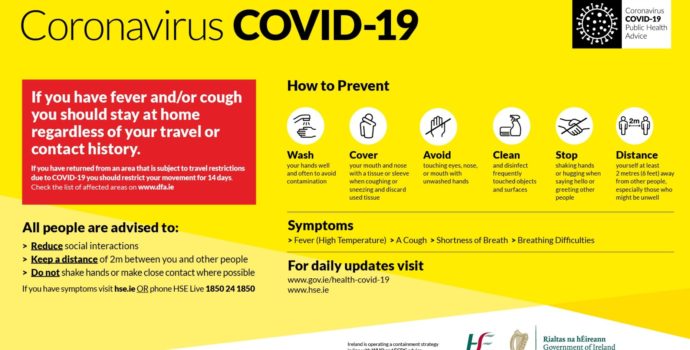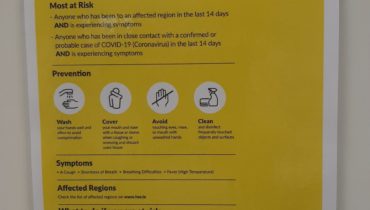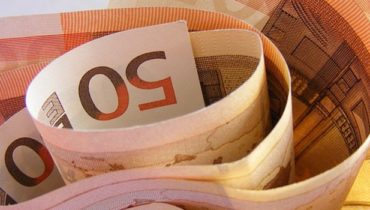Beef Finisher Payment Scheme
Find out about how to apply to the new Beef Finisher Payment Scheme with details from the Department of Agriculture.
IFA put a detailed set of proposals to the Government and the European Commission in response to the COVID-19 pandemic, highlighting the impact on beef farms.
IFA has been intensively lobbying the Government and the EU Commission on COVID-19 supports for the beef sector highlighting the economic impact of COVID-19.
About the Beef Finisher Payment Scheme
The scheme is a one off, exchequer funded grant aid scheme under the Covid19 State Aid Temporary Framework with funding totalling €50M. The objective of BFP Scheme is to provide support for beef finishing farms in Ireland which have been severely impacted by the economic effects of the Covid-19 pandemic.
This support is available as an income support and to mitigate the economic impact of the Covid-19 pandemic for those farmers who finished cattle during the period from 1 February to 12 June 2020.
The scheme is be open to all beef farmers who presented animals for slaughter in the period 1 February 2020 to 12 June 2020 inclusive and fulfil the requirements set out in the T&Cs. Applicants must be a member of the Bord Bia Beef and Lamb Quality Assurance Scheme at the time of application, or undertake to become a member of the quality scheme prior to 30 September 2020, and maintain that membership on a continuous basis until 30 September 2021.
Agents and Dealers are not eligible to apply.
Animals slaughtered which are factory owned or controlled are not eligible for payment.
The scheme is opened from Wednesday 19th August until Wednesday 9th September.
Based on estimates of eligible animals, a rate in the region of €100 per animal will be payable. In the event of the scheme being oversubscribed the payment due to each applicant may be subject to a linear reduction.
Applications are open on agfood.ie until 9th September 2020
Applicants must be farming a holding in respect of which a valid Basic Payment Scheme application is submitted in 2020 to the Department prior to the 30 September 2020.
Details on how to apply for the scheme are available here or by clicking the ‘How to Apply’ button at the top of this page.
Full details on the scheme from the Department of Agriculture are available here.
Eligible Animals: bovines aged 8 months or over, presented for slaughter between 1st February 2020 to 12th June 2020 inclusive.
Applications open on agfood.ie from 18th August to 9th September. Late applications will not be accepted.
Payments will be made in November 2020.
IFA Submissions to Government and the EU Commission: The need for strong Beef Supports due to the COVID-19 Emergency
Summary
As the largest net beef exporter in the EU, with annual exports of c560,000t pa, COVID-19 market closures and disturbances are causing unprecedented disruption and having a very severe impact across the beef and livestock sector in Ireland.
IFA is proposing that the Government and the EU Commission must act swiftly and introduce emergency measures including utilising the EU Common Market Organisation Regulation to support farmers with direct payments for price related market losses.
- Ireland exports c560,000 tonnes of beef annually with 265,000t to the UK market, 250,000t to EU markets and 45,000t to international markets.
- COVID-19 has caused major market closures and disruptions. The restaurant and food service sector are almost fully closed across the domestic market, the UK and all EU markets.
- Bord Bia and MII estimate that Irish beef sales are divided 40% retail, 32% food service and 29% manufacturing, with large volumes of manufacturing ending up in food service.
- While retail demand has increased (some estimates of a 10% to 20% increase), a high proportion of retail sales are for mince, burgers and diced beef.
- It is estimated that up to 60% of Irish steak sales go to the food service markets. Steak meat represents 30% of the value of a carcass.
- With the collapse in the restaurant and food service sector, the impact on steak sales (volumes and price) has been very severe and the impact in Ireland will be compounded due to our very high export dependence.
- While it is very difficult to get accurate beef sale prices in the current market, some information from processors suggests that prices for steaks are down 40% to 60% compared to 2019. Some examples of the price drops over that period are as follows; Fillets €16-€18/kg down to €6/kg. Striploins €10-€11/kg down to €6/kg. Ribeye €12-€14/kg down to €6/kg.
- In regard to the price of non-EU imports, there are reports of price discounts of 50% on steak cuts and of high quality (Hilton) quota price reductions from €14-€15/kg down to €8-€9/kg.
- The closure of the EU restaurant and food service markets is having a severe impact on the sales of Dutch veal, which in turn is impacting on the live export trade (price and volume) of calves from Ireland.
- Market confidence is being rapidly eroded with cattle prices falling in an already difficult spring price situation. Farmers are finding it difficult to sell cattle and factories are more reluctant to buy cattle.
- In the last two weeks, beef price quotes (R3 steers) from the factories have fallen by 15/20c/kg from a base price of €3.65/€3.70/kg incl. vat back to €3.50/kg for Monday March 30th. This is a price reduction of €70/€80 per head in a 10-day period, at a time when producers were already losing money. In addition, many farmers are finding it very difficult to get factories to offer any price for cattle and some factories have reduced their kill numbers.
- Since Autumn 2018, Irish farmers have endured a prolonged period of exceptionally low and unsustainable beef prices, as a result of on-going Brexit market uncertainty and sterling/euro exchange rate fluctuations. Approximately half of all Irish beef exports go to the UK market. In the last 12 months the €uro/sterling exchange rate has varied from 83p/€ to 95p/€, currently at 90p/€.
- Before the impact of COVID-19, Cattle prices (R3 steers) for 2019 and so far for 2020 are down 20c/24c/kg or up to €90 per animal compared to the average of 2017 and 2018 levels.
- Cattle prices were so low in 2018/2019, that an exceptional aid BEAM scheme of €100m was provided by the EU and Government to support beef farmers.
- Before the COVID-19 crisis, livestock farm incomes were already low due to low beef prices and cuts to direct payments. Average cattle farm incomes5 are €14,460 for cattle fattening enterprises and €8,311 for cattle rearing.
- Market closures have also disrupted the important live export trade reducing essential price competition and market outlets.
- The closure of the livestock marts has also severely disrupted the domestic livestock market especially for younger store cattle, weanlings and calves.
IFA Proposals
Keeping a Viable Market Operational
Swift action is required at Government and EU Commission level in order to support the beef sector, beef markets and beef farmers in order to minimise the impact of the COVID-19 crisis and protect the beef supply chain.
A priority must be to keep the sector operational and viable and keep routes to markets open including for live exports. This is essential at national level and also for exports to the EU Single Market, the UK market and international markets.
Member states must be provided with maximum flexibility to prioritise trade and movements of animals within members states over TB testing requirements in the Trade Directive. This is important in protecting the health and wellbeing of farmers, farm families, farm workers and veterinary practitioners. The TB testing measures required in the EU Trade Directives must be suspended for internal member state movements to provide this vital flexibility.
Direct Support for Beef Farmers
In view of the extremely low farm incomes, beef farmers cannot endure any further price cuts from COVID-19 market disruptions. The EU CMO (Common Market Organisation) measures available under EU Regulation 1308/2013, Articles 219 to 221 must be immediately utilised to support farmers with direct payments for any price related market losses.
Beef price losses can be transparently identified, calculated and verified. The same emergency measures were successfully utilised under the BEAM6 scheme arrangements in Ireland from September 2018 to May 2019 in response to the Brexit related market disturbances and beef price losses.
Market Supports
Market supports in the form of specific and targeted APS7 may have to be utilised to support specific products / parts of the market.
Suspension of non-EU Imports.
In 2019, a total of 318,500 tonnes cwe8 of beef was imported from non-EU countries, with 78% coming from Mercosur countries, which equates to the steak cuts from 45% of the EU beef kill. The majority of non-EU beef imports is chilled/frozen product with a small share as processed beef. The chilled/frozen product is dominated by steak cuts which are targeted at the restaurant/food service sector.
With the collapse in the steak market due to COVID-19, the EU Commission should move to protect the EU markets and prices, and suspend all non-EU beef imports.
Promotions
The EU should immediately introduce a strong pan-European promotional programme at retail level on beef targeted at higher-value steak cuts.
Marts
The impact of COVID-19 on the trade in younger cattle (calves, weanlings and store cattle) at the marts has been very significant. While the marts have adopted significantly with many moving to on-line sales, a large number of farmers have decided not to sell their stock during this period because of the absence of a traditional mart sale, with open auction sales.
IFA Proposal
That marts can get back to full open auction ring sales as soon as possible.
This is particularly important in the context of the second half of the year for the summer and autumn sales for cattle and sheep.
Support needs to be forthcoming to marts involving an amnesty on rates, reduction in insurance charges and grant aid for infrastructural investments such as IT expenditure to facilitate on line sales.






